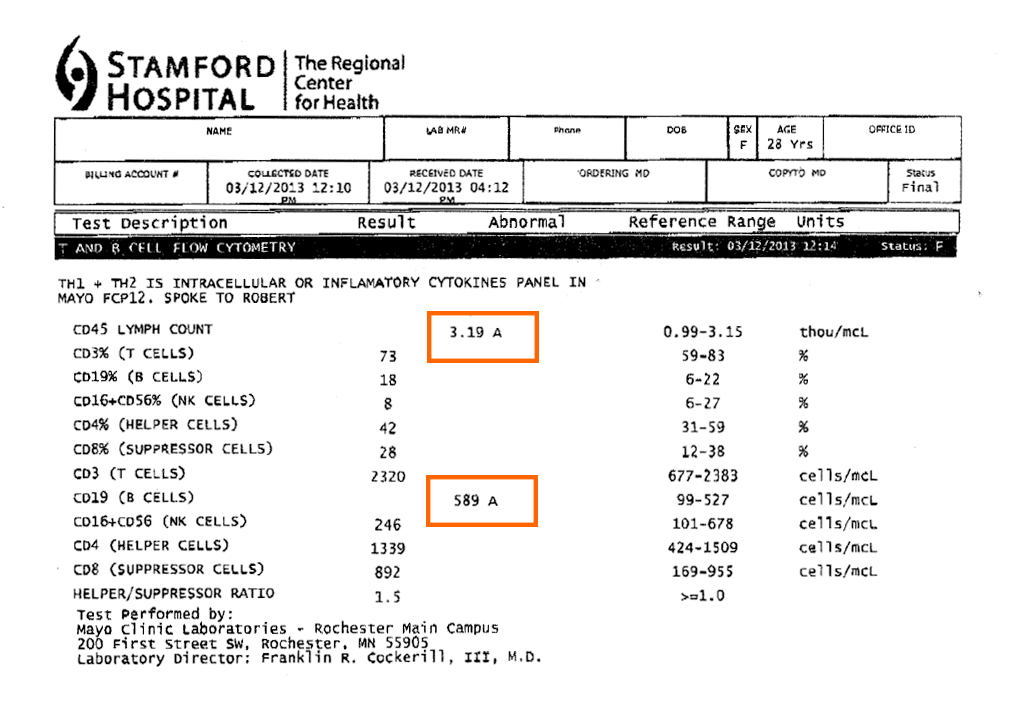Blood Tests
Blood testing is a diagnostic method to measure biomarkers that determine the normal functions, or the diseased state, of an individual.
I’m sure you are familiar with standard blood testing for cholesterol (LDL, HDL), red and white blood cells, and glucose. Most blood testing is used as a general way to assess the health of an individual, but the value of blood work goes far beyond just the ‘standards of care.’
Biomarkers found in blood are placed into reference ranges that span from low to high. When a marker is outside the reference range, it is then classified as a problem.
However, biomarkers should be used to determine patterns of disease or dyfunction over time, not just as a single snapshot in time. Also, if a biomarker is slightly out of range, that may be normal for you rather than an indication of a dysfunction that needs intervention.
A Functional Approach to Blood Interpretation
The typical approach to interpreting blood work focuses on an individual biomarker with a myopic interpretation for its elevation. A good example of this is cholesterol.
Elevated cholesterol by itself is not diagnostic of any major disease or pathology. High cholesterol is one biomarker—one puzzle piece—within the internal landscape of an individual.
The high cholesterol could be a consequence of long-term blood-sugar problems, a thyroid dysfunction, or a familial (genetic) dysfunction. Because cholesterol is a liver-function test, digging deeper into your physiology through blood work will aid in determining the reason for the elevated cholesterol.
Thyroid-stimulating hormone (TSH) is a second example. TSH is released from the brain, which then tells the thyroid to release more thyroid hormones—T3 and T4. High TSH is an indication of a low-active thyroid, not conclusive of an underactive thyroid. Evaluating TSH, free T3, free T4, and TPO antibodies provides a greater look into thyroid function.
inpatient blood draws are conducted every minute in the United States
percent of clinical decision making is based on blood work
Blood testing considerations
- Knowing your history, gender, lifestyle, symptoms, condition and your goals determines what part of your physiology needs to be evaluated, and which biomarkers should be evaluated.
- Interpretation is the most important step. Often, you are told all is OK, when clearly it is not. Treatment may be determined based on a single biomarker that is high or low. The key to understanding blood work is to realize how all the biomarkers provide information about the whole person. Each biomarker is one piece of the puzzle; all pieces are needed for a correct diagnosis.
- During treatment, periodic testing determines the effectiveness of that treatment.
- After treatment is completed, further blood testing determines the prognosis (prediction of your outcome).
Note: Medically treating one high biomarker instead of treating the whole individual is a serious error
Dr. Zembroski uses state-of-art laboratories to determine the reason for your chronic health issues.
Whether you are looking for a general screening, testing to determine the stage of your arterial and heart health, or uncovering an autoimmune dysfunction, proper blood testing with a focused interpretation can and will help guide you back to health, or indicate the need for some form of intervention.
Special Blood Tests
Depending on your specific needs and health issues, Dr. Zembroski may order special lab work to dig deeper into your physiology to better understand why you have a specific health problem and where it came from.
During treatment, periodic testing determines the effectiveness of that treatment. After treatment is completed, further blood testing determines the prognosis (prediction of your outcome).

Blood testing determines the normal state or the diseased state of an individual
Whether you are looking for a general screening, testing to determine the stage of your arterial and heart health, or uncovering an autoimmune dysfunction, proper blood testing with a focused interpretation can and will help guide you back to health, or indicate the need for some form of intervention.
Blood testing is a diagnostic method to measure biomarkers that determine the normal functions, or the diseased state, of an individual.
.
Please contact us for proper blood testing
Get into the Z-Zone
Dr. Z is fired up, ready to ignite the persistence and grit of those who are fed up, pissed off, and determined to reclaim their health and their bodies.
We look forward to being a part of your personal rebuild
“A diagnosis is not your destiny”
© 2020 Dr. Robert Zembroski
Meet Dr. Zembroski
203-655-4494
Members of the press are welcome to contact Dr. Z regarding any requests at info@darienfm.com
Connect with Dr. Z